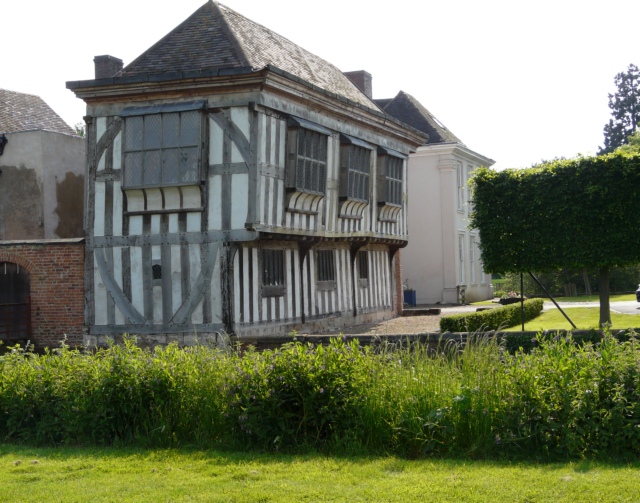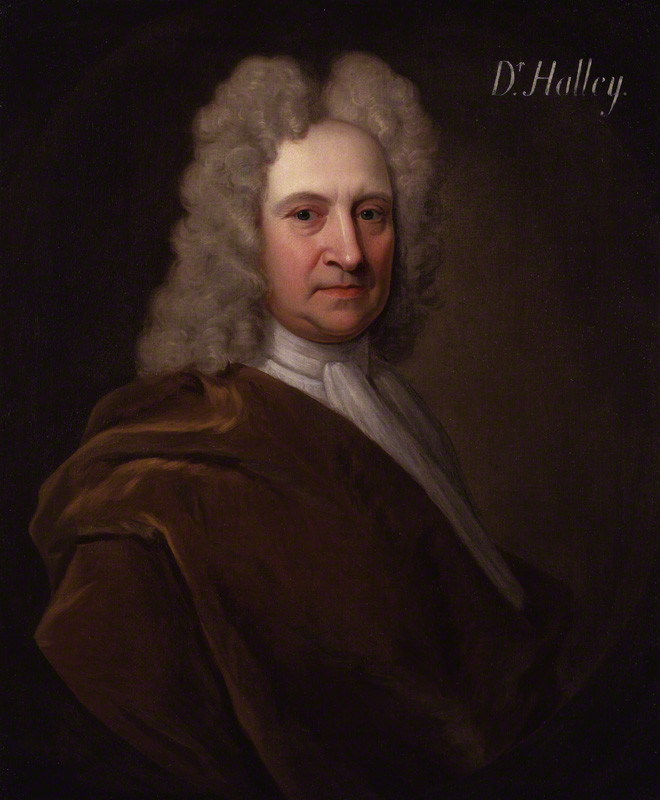|
De Historia Piscium
''De Historia Piscium'', (Latin for 'Of the History of Fish') is a scientific book written by Francis Willughby and published by the Royal Society in 1686. It was unpopular and sold poorly, causing severe strain on the finances of the society. This resulted in the society being unable to meet its promise to finance the publication of Newton's '' Philosophiae Naturalis Principia Mathematica'' ("''Mathematical Principles of Natural Philosophy''", better known simply as ''Principia''), leaving this to Edmond Halley Edmond (or Edmund) Halley (; – ) was an English astronomer, mathematician and physicist. He was the second Astronomer Royal in Britain, succeeding John Flamsteed in 1720. From an observatory he constructed on Saint Helena in 1676–77, H ..., who was then the clerk of the society. After Halley had personally financed the publication of ''Principia'', he was informed that the society could no longer afford to provide him the promised annual salary of £50. Instead ... [...More Info...] [...Related Items...] OR: [Wikipedia] [Google] [Baidu] |
Latin
Latin (, or , ) is a classical language belonging to the Italic branch of the Indo-European languages. Latin was originally a dialect spoken in the lower Tiber area (then known as Latium) around present-day Rome, but through the power of the Roman Republic it became the dominant language in the Italian region and subsequently throughout the Roman Empire. Even after the fall of Western Rome, Latin remained the common language of international communication, science, scholarship and academia in Europe until well into the 18th century, when other regional vernaculars (including its own descendants, the Romance languages) supplanted it in common academic and political usage, and it eventually became a dead language in the modern linguistic definition. Latin is a highly inflected language, with three distinct genders (masculine, feminine, and neuter), six or seven noun cases (nominative, accusative, genitive, dative, ablative, and vocative), five declensions, four verb conjuga ... [...More Info...] [...Related Items...] OR: [Wikipedia] [Google] [Baidu] |
Francis Willughby
Francis Willughby (sometimes spelt Willoughby, la, Franciscus Willughbeius) FRS (22 November 1635 – 3 July 1672) was an English ornithologist and ichthyologist, and an early student of linguistics and games. He was born and raised at Middleton Hall, Warwickshire, the only son of an affluent country family. He was a student at Trinity College, Cambridge, where he was tutored by the mathematician and naturalist John Ray, who became a lifetime friend and colleague, and lived with Willughby after 1662 when Ray lost his livelihood through his refusal to sign the Act of Uniformity. Willughby was elected as a Fellow of the Royal Society in 1661, then aged 27. Willughby, Ray, and others such as John Wilkins were advocates of a new way of studying science, relying on observation and classification, rather than the received authority of Aristotle and the Bible. To this end, Willughby, Ray and their friends undertook a number of journeys to gather information and specimens, ini ... [...More Info...] [...Related Items...] OR: [Wikipedia] [Google] [Baidu] |
Royal Society
The Royal Society, formally The Royal Society of London for Improving Natural Knowledge, is a learned society and the United Kingdom's national academy of sciences. The society fulfils a number of roles: promoting science and its benefits, recognising excellence in science, supporting outstanding science, providing scientific advice for policy, education and public engagement and fostering international and global co-operation. Founded on 28 November 1660, it was granted a royal charter by King Charles II as The Royal Society and is the oldest continuously existing scientific academy in the world. The society is governed by its Council, which is chaired by the Society's President, according to a set of statutes and standing orders. The members of Council and the President are elected from and by its Fellows, the basic members of the society, who are themselves elected by existing Fellows. , there are about 1,700 fellows, allowed to use the postnominal title FRS (Fellow of the ... [...More Info...] [...Related Items...] OR: [Wikipedia] [Google] [Baidu] |
Isaac Newton
Sir Isaac Newton (25 December 1642 – 20 March 1726/27) was an English mathematician, physicist, astronomer, alchemist, theologian, and author (described in his time as a "natural philosopher"), widely recognised as one of the greatest mathematicians and physicists and among the most influential scientists of all time. He was a key figure in the philosophical revolution known as the Enlightenment. His book (''Mathematical Principles of Natural Philosophy''), first published in 1687, established classical mechanics. Newton also made seminal contributions to optics, and shares credit with German mathematician Gottfried Wilhelm Leibniz for developing infinitesimal calculus. In the , Newton formulated the laws of motion and universal gravitation that formed the dominant scientific viewpoint for centuries until it was superseded by the theory of relativity. Newton used his mathematical description of gravity to derive Kepler's laws of planetary motion, account for ... [...More Info...] [...Related Items...] OR: [Wikipedia] [Google] [Baidu] |
Philosophiae Naturalis Principia Mathematica
Philosophy (from , ) is the systematized study of general and fundamental questions, such as those about existence, reason, knowledge, values, mind, and language. Such questions are often posed as problems to be studied or resolved. Some sources claim the term was coined by Pythagoras ( BCE), although this theory is disputed by some. Philosophical methods include questioning, critical discussion, rational argument, and systematic presentation. in . Historically, ''philosophy'' encompassed all bodies of knowledge and a practitioner was known as a '' philosopher''."The English word "philosophy" is first attested to , meaning "knowledge, body of knowledge." "natural philosophy," which began as a discipline in ancient India and Ancient Greece, encompasses astronomy, medicine, and physics. For example, Newton's 1687 '' Mathematical Principles of Natural Philosophy'' later became classified as a book of physics. In the 19th century, the growth of modern research universi ... [...More Info...] [...Related Items...] OR: [Wikipedia] [Google] [Baidu] |
Edmond Halley
Edmond (or Edmund) Halley (; – ) was an English astronomer, mathematician and physicist. He was the second Astronomer Royal in Britain, succeeding John Flamsteed in 1720. From an observatory he constructed on Saint Helena in 1676–77, Halley catalogued the southern celestial hemisphere and recorded a transit of Mercury across the Sun. He realised that a similar transit of Venus could be used to determine the distances between Earth, Venus, and the Sun. Upon his return to England, he was made a fellow of the Royal Society, and with the help of King Charles II, was granted a master's degree from Oxford. Halley encouraged and helped fund the publication of Isaac Newton's influential ''Philosophiæ Naturalis Principia Mathematica'' (1687). From observations Halley made in September 1682, he used Newton's laws of motion to compute the periodicity of Halley's Comet in his 1705 ''Synopsis of the Astronomy of Comets''. It was named after him upon its predicted return in 1758, ... [...More Info...] [...Related Items...] OR: [Wikipedia] [Google] [Baidu] |
Science Books
A science book is a work of nonfiction, usually written by a scientist, researcher, or professor like Stephen Hawking (''A Brief History of Time''), or sometimes by a non-scientist such as Bill Bryson ('' A Short History of Nearly Everything''). Usually these books are written for a wide audience presumed to have a general education rather than a specifically scientific training, as opposed to the very narrow audience that a scientific paper would have, and are therefore referred to as popular science. As such, they require considerable talent on the part of the author to sufficiently explain difficult topics to people who are totally new to the subject, and a good blend of storytelling and technical writing. In the UK, the Royal Society Prizes for Science Books are considered to be the most prestigious awards for science writing. In the US, the National Book Awards briefly had a category for science writing in the 1960s, but now they just have the broad categories of fiction ... [...More Info...] [...Related Items...] OR: [Wikipedia] [Google] [Baidu] |





